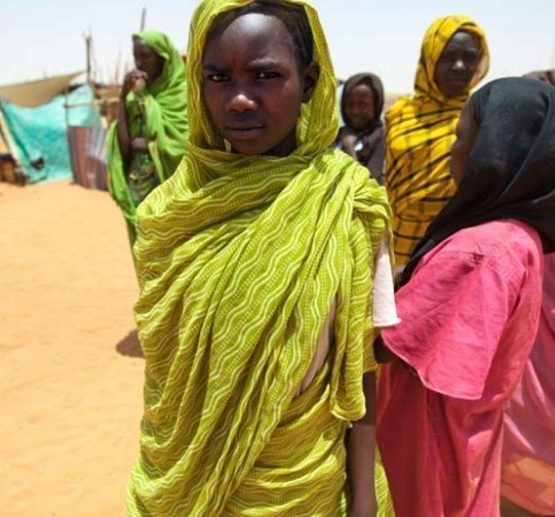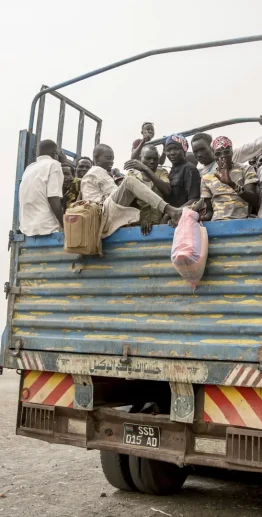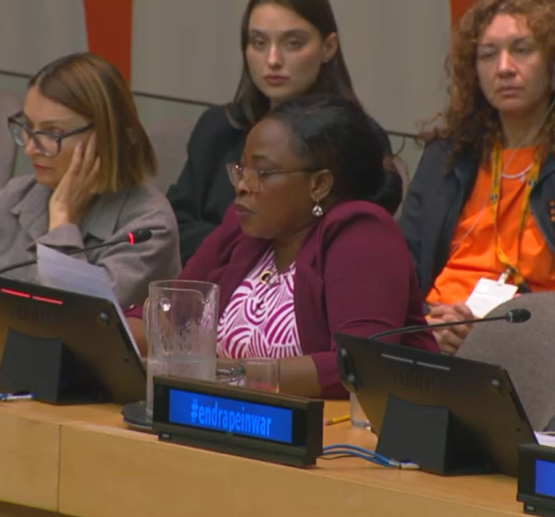Darfur Women Action Group (DWAG) is gravely concerned about the living conditions of the civilians, particularly internally displaced people (IDPs) across Darfur. On January 22, a report from Radio Dabanga (RD) confirmed that internally displaced persons (IDPs) in North Darfur are suffering from disease and starvation; in addition, the rape and murder of a displaced woman farmer took place in Central Darfur on January 23, and former IDPs returning to their village in South Darfur came home to destroyed buildings and poor humanitarian conditions. Innocent civilians are suffering – and perpetrators continue to enjoy impunity for their atrocities – because the leaders of the world have neglected their obligations as per international law.
As reported by RD, health and humanitarian conditions in the Zamzam camp, the largest IDP camp in Darfur, are rapidly worsening. Malaria, fevers, and other illnesses have spread among children like wildfire, due to a lack of medicine; the shortage has proven so severe that IDPs have resorted to using traditional ‘’medicine’’ instead. In addition, a poor harvest in 2022 has led to a lack of food and saw children forced to beg for food. Armed militants damaged the harvest by repeatedly – and purposefully – attacking IDP farms and destroying crops.
These attacks occurred in the rainy season, which is crucial to crop growth and food production. The Zamzam camp originated two decades ago when the Darfur genocide started, and still holds 200,000 displaced people or more. Last September, activists and IDPs protested the continuous attacks of gunmen on them when they left the camp and the lack of essential services.
Even outside North Darfur, displaced people continue to face violence and poor humanitarian conditions. Last Sunday, IDPs who returned to Amori village in Beleil, South Darfur, reported poor living conditions and poor distribution of aid. These villagers reported that their homes had not been rebuilt as promised, with some even ‘’living in the open’’ and suffering from a lack of food, utensils, and protection from the cold, as well as still missing their stolen belongings. Beleil is home to farming families of the Daju ethnic group, which already faced internal displacement before in the past and only returned a few years ago. This village, known as Amori, was one of more than 10 villages that armed RSF members attacked last winter. As a result of the more recent attack, at least 15 people died and at least 16,000 faced forced displacement.
Additionally, in Central Darfur last Saturday, assailants raped and murdered a displaced 20-year-old woman, Nawal Yagoub (20). Uniformed militants had recently been threatening to move their livestock onto farms near the Nierteti Northern Camp for IDPs. In addition, the crops in the farm – near where the rape and murder took place – were found destroyed.
These attacks are not random, but deliberate. These attacks – and prior attacks in Darfur – target indigenous Africans, in line with the al-Bashir government’s genocide against indigenous Africans and the current government’s close ties with the Rapid Support Forces (RSF). The RSF are remnants of the old regime that committed (and continue to commit) genocidal violence. In addition, these attacks have occurred because the international community has largely turned a blind eye to the carnage, destruction, and oppression in Darfur – it has passed multiple resolutions on Darfur, but it has also neglected and failed to enforce them, emboldening perpetrators to act with impunity and escalate their atrocities.
Therefore, we urge the Biden Administration and the member states of the United Nations Security Council (UNSC) to make the protection of civilians and human rights in Darfur an utmost priority. Furthermore, we call on the US and other member states of the UNSC to take the following steps, so civilians no longer have to endure and suffer from violence:
- Pressure the Sudanese government to cease all forms of violence against civilians;
- Provide emergency humanitarian assistance to the Sudanese people, as well as pressure the Sudanese government to open up immediate access to humanitarian agencies;
- Pursue accountability and support the International Criminal Court (ICC) in holding those responsible for violence accountable;
- Implement the responsibility to protect (R2P) doctrine and authorize civilian protection forces in Darfur and other conflict-affected parts of Sudan to end violence and save lives.
We ask our supporters to join us in speaking up for the people of Darfur and reminding our leaders that to be silent in the face of atrocities is to take the side of the oppressor. Darfur has suffered for far too long, and we must continue urging the international community to stem the flow of blood and tears by ending impunity for genocidal violence and oppression. If we can unite and speak for Darfur with one loud voice, we can make a difference.
Latest Features and News
Latest Headlines
Sudanese seek refuge underground in besieged Darfur city
March 15 - 2025
Sudan facing ‘the abyss’ unless war ends as…
March 13 - 2025
+ Read MoreLatest Headlines
Sudan war: Children facing ‘unimaginable suffering’, warns UNICEF…
March 13 - 2025
MSF pulls out of famine-stricken camp in Sudan’s…
February 24 - 2025
+ Read More


